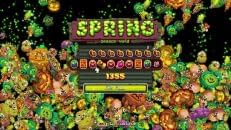Indie Marketing 101: The Right (And Wrong) Ways To Market Your Indie Game
CONTACTING PRESS
Right, on to our area of expertise then – making contact with the press and getting coverage. The first thing to consider when dealing with press is who you should contact. Ideally, you want to target everyone – anyone who is willing to take a look at your game and spread the word. Don’t ever consider that some coverage is “too small”, because that doesn’t exist. You need to get as much as you can because you never know who might stumble across that random article/video/podcast and hear about your game. If you don’t open up that opportunity then it’s not going to happen, is it? It’s all about creating your own luck.
How do you go about getting all of these contacts though? Well, that’s probably the hardest part, at least to begin with, so you need to make sure you start building up a list of contacts very early on. Check websites all over for email addresses, especially the links in footers. Also do a quick Google search as there are sites and forums where people have made their contact lists available to the public. Every email address or phone number that you get needs to be archived and easy to find. Consider categorizing your list of contact details so that, presuming you do get a healthy list, you can find specific ones without too much hassle. There are also a number of sites to which you can submit a press release for distribution amongst their contacts, using these can be costly at times but there are a number of them that are “indie friendly”. These are low cost and have the right contacts (not just any old media outlet) to send your press releases to.
Here’s a start to your big list of press contacts: [email protected]
One of the biggest questions regarding marketing is when do you start doing it? The answer is from day one or as soon as possible – tell as many people as you can that you’re making a game and what it’s about. If anything it’s good practice. Ideally you do want to have something impressive to show if you expect any press coverage though. Everyone has ideas and most people can write them down. As these are games they really need to be seen or played to be understood. So, when first contacting press it’s usually a good idea to include screenshots, concept art or a trailer, as well as a brief description of the game. In fact, while we’re on the topic, let’s focus on writing emails to press.
Writing The Email
From the top then! Subject line – easy enough, or is it? Just keep it simple and things should go smoothly. Buzz words like “New Game”, “Announcement” “Trailer” will increase the chances of it getting opened and inspected more thoroughly. Get the game’s title in there as well, that way it will stick in the journalist’s head for longer.
Now, the journalist has opened up the email, you’ve got them! First thing you shouldn’t do at this stage is begin with “Dear Sir/Madam” or anything quite so impersonal. If you know the name of the person you’re writing to, say “Hey” or “Hi” followed by their name – not their full name, keep it casual. Next you need to get right into your game – tell them four things about it in three sentences. No babbling at this point, just get right into it – what genre(s) it fits into, perhaps why you’ve made it, previous games of yours, what platforms it is coming to and so on. There’s loads of things you could say, but make sure you get the bare essential information in there at first. Don’t beg either – that’s never good.
You know what we’re going to say now don’t you? LINKS! Give us links. If you have a website and a trailer, send us over there and we’ll take a look if we’re interested. Nine times out of ten, we’ll probably skim read a few things and then just watch a trailer or look at some screenshots if provided to assess the game. Only after that and if we want to know more would we consult the information you give in the email or press release, and even then we’d much rather go to a colorful website to read about the game if possible.
Lastly, offer ways for us to follow up but do not ever demand anything. Give more contact information, say that you are up for partaking in an interview. Perhaps even offer some exclusive materials – journalists love that kind of thing.
We highly recommend trying out the newly released and free presskit(), which is designed to help developers put together a press kit in an hour or less.
Repetition Is Not A Bad Thing
The truth of the matter is journalists get hundreds of press releases and emails every week. Sometimes every day if it’s a particularly busy time. So, in order to stand out you’re going to need either a very good looking game and an equally impressive presentation of it, or you may have to bug the press more than just once. Fear the spam filter though – a number of times we haven’t received emails from a developer because they’ve sent them off too frequently and the email spam filter hides them away in the spam folder.
Here’s a little fact to think about: the average person won’t remember something unless told six times.
Now, that doesn’t mean send six emails off all at once, it just means that you should continue to contact press about your game if they don’t respond after the first time. Sometimes, blasting the press does become an unfortunate consequence. By this we mean that you’ve sent so many emails that they don’t want to check out your game purely due to spite. You’ve annoyed them and they’ve had enough. Avoid this at all costs.
Mind you, saying that, we remember when King Arthur’s Gold was being blasted around and for a whole week the emails just kept coming and coming. Eventually we just wanted to make them stop so we checked the game out during a free moment. King Arthur’s Gold won a Game of the Year award at IGM last year. There’s a message in that somewhere.
So, once you’ve announced your game you want to keep the development progress regularly written down so as to update anyone who is interested about it. Point them to your blog and tell them that, if they’re interested, they can read up on the development of the game over there. A number of developers send an email every week or once a month about their progress – this isn’t a bad idea. This is different to sending a press release though. You should be sending your press releases at every ‘big’ moment during development. This might be a new trailer, the release of the game’s alpha build, a demo, the game’s actual release, new DLC, maybe even when it’s available via more distribution portals – that covers most of them but there could certainly be more.
Anything that you can do to maximise exposure is great! Don’t rely on people to find your game as they won’t; you do need to spread the word and often. Don’t be scared to get yourself out there either. Some developers come across as if they feel they’re intruding – what needs to be understood is that the press WANT you to tell them about your game. They are constantly on the lookout for new and interesting games, no matter how small they may be – well, that’s applicable to the indie game press at least. Make the job easier for the press and they’ll be happy to oblige with an article – don’t wait for them to ask you for anything, offer it out to them. There’s no harm in asking, but don’t demand that they do anything.
Like we said, offer exclusives, interviews, maybe write a quote from you or someone in the studio about a certain hot topic; controversy and entertainment up the chances of coverage greatly. Most importantly, act casual and be friendly and even become friends with the press, they’re real people as well.
Page 4: Contacting Press






